Northeastern University’s Center on Crime and Community Resilience
Funded through the Global Resilience Institute, Northeastern University’s Center on Crime and Community Resilience supports multi-disciplinary research in eight strategic focus areas that exist across GRI and Northeastern.
The center is focused on collaborating with the City of Boston to understand and address persistent public safety problems. The establishment of this research infrastructure better positions Northeastern to acquire the necessary external funding to support action-oriented research on crime and community resilience issues in other cities across the U.S. and internationally.
Project Principal Investigators
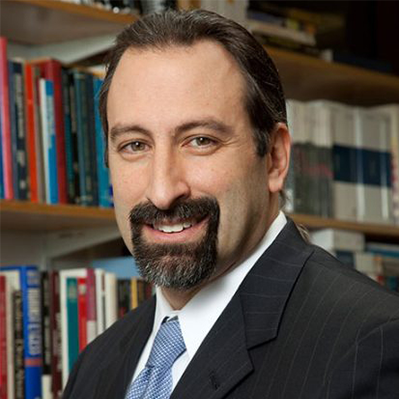
Anthony Braga

Anthony Braga
Elmer V.H. and Eileen M. Brooks Professor and Distinguished Professor of Criminology and Criminal Justice; Director, Center on Crime and Community Resilience
- Email: a.braga@northeastern.edu
Anthony A. Braga is distinguished professor and director of the School of Criminology and Criminal Justice effective July 1, 2016. Braga’s record combines deep engagement in Boston and an international reputation as a leading researcher on crime prevention. He collaborates with criminal justice, social service, and community-based organizations to produce high impact scholarship, randomized field experiments, and policy advice on the prevention of crime at problem places, the control of gang violence, and reductions in access to firearms by criminals. With colleagues, Braga has published numerous peer reviewed journal articles in top criminology and criminal justice journals such as Criminology, Journal of Research in Crime and Delinquency, Justice Quarterly, and the Journal of Quantitative Criminology. Braga has authored three books and edited seven volumes with top scholarly presses such as Oxford University Press and Cambridge University Press.
Braga has served as principal investigator or co-principal investigator on projects totaling more than $11 million dollars in external funding from a variety of federal, state, and private grant-making institutions including the U.S. National Institute of Justice, National Institutes of Health, and National Science Foundation. He is currently serving as a committee member for the National Research Council Committee on Proactive Policing – Effects on Crime, Communities, and Civil Liberties and the Science Advisory Board to the Office of Justice Programs, U.S. Department of Justice. Braga is a fellow of the American Society of Criminology (ASC). He is also a past president and fellow of the Academy of Experimental Criminology (AEC), and the 2014 recipient of its Joan McCord Award recognizing his commitment to randomized controlled experiments.
The practical value of his work in violence reduction in disadvantaged neighborhoods has been recognized by a numerous awards, including the Civic Leadership Award (2004) presented by The Boston Foundation, the United States Attorney General’s Award for Outstanding Contributions to Community Partnerships for Public Safety (2009), and the U.S. Department of Justice Project Safe Neighborhoods Research Partner of the Year Award (2010). Between 2007 and 2013, Braga served as Chief Policy Advisor to former Boston Police Commissioner Edward F. Davis and worked with his command staff and line-level officers on award-winning community policing and crime prevention initiatives. Braga holds an M.P.A. from Harvard University, and a Ph.D. in criminal justice from Rutgers University.
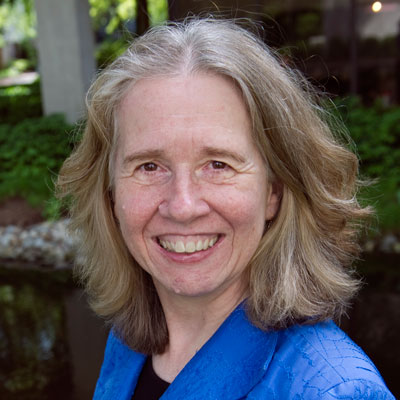
Lee Breckenridge

Lee Breckenridge
Research Professor, Water, Climate Extremes and Security Threats
Professor Breckenridge specializes in environmental and natural resources law. She began her career as an attorney with the Environmental Protection Agency in Washington, DC, where she worked on important regulatory efforts to control water pollution and protect safe drinking water. Professor Breckenridge continued her environmental work as an assistant attorney general with the state of Tennessee and the commonwealth of Massachusetts. She served as a law clerk for Judge Gilbert S. Merritt on the US Court of Appeals for the Sixth Circuit.
Before joining the faculty of the School of Law, Professor Breckenridge was chief of the Environmental Protection Division for the Massachusetts Attorney General’s Office, where she engaged in a wide range of litigation to enforce requirements of federal and state air and water pollution statutes, hazardous waste management requirements, and wetlands and tidelands protection laws.
At Northeastern, Professor Breckenridge teaches courses in environmental law, natural resources law, land use and administrative law. She works with students on independent study projects focusing on related topics, such as climate change mitigation and adaptation, urban environmental justice, affordable housing, agriculture and food systems, forest management, land trusts and conservation easements. In her research and advocacy work, she has a particular interest in aquatic ecosystems and in the evolution of property and regulatory systems to coordinate resolution of conflicts over natural resources. As a member of the board of advisors and former director of the Charles River Watershed Association and a participant in government task forces, she has advocated for new policies and regulations to manage urban infrastructure and land uses in order to preserve environmental quality and maintain instream water flows in rivers and streams.
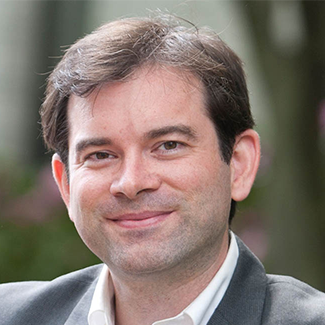
Matthew Eckelman

Matthew Eckelman
Associate Professor, Civil and Environmental Engineering
- Email: m.eckelman@northeastern.edu
Matthew Eckelman is an Associate Professor at Northeastern University in Civil and Environmental Engineering, with a secondary appointment in Chemical Engineering. His research & scholarship interests include: Environmental engineering and sustainability; life cycle assessment; energy efficiency and emissions modeling; environmental assessment of bio and nanomaterials; material and energy use in urban buildings and infrastructure.
Dr. Eckelman holds a B.A. in Physics and Mathematics from Amherst College and a doctorate in Environmental Engineering from Yale University

David Fannon

David Fannon
Associate Professor, integrates research, analysis, and design to provide occupant comfort and wellbeing in long-lasting, low-resource consuming buildings
- Email: d.fannon@northeastern.edu
David Fannon is an architect and building scientist whose work integrates research, analysis, and design to provide occupant comfort and wellbeing in long-lasting, low-resource consuming buildings. He holds a joint appointment in the School of Architecture and the Department of Civil and Environmental Engineering.
David has held positions at international engineering, architecture, A/E and specialty consulting firms, where he contributed to a range of new construction, renovation and historic restoration projects for government, higher-education and commercial clients. He has conducted research in academic and professional settings, consulted on strategic planning and change management and performed simulation and analysis for a range of high-performance buildings.
David earned a Bachelor of Architecture degree from Rensselaer Polytechnic Institute, a Masters from University of California Berkeley, and is a registered architect in the State of New York. He is a member of ASHRAE and a LEED Accredited Professional with a Building Design and Construction specialty
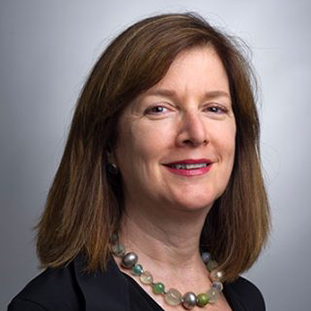
Joan Fitzgerald

Joan Fitzgerald
Professor, Public Policy and Urban Affairs
Joan Fitzgerald focuses on urban climate governance and the connections between urban sustainability and economic development and innovation. Her third book, Emerald Cities: Urban Sustainability and Economic Development (Oxford Univ. Press), examines how cities are creating economic development opportunities in several green sectors and discusses the state and national policy needed to support these efforts. Emerald Cities builds on her 2002 book, Economic Revitalization: Strategies and Cases for City and Suburb (Sage), which identifies strategies for incorporating sustainability and social justice goals into urban economic development planning. In 2012 she published a three-volume anthology, Cities and Sustainability. Fitzgerald has published in academic journals such as Environment and Planning C: Government and Policy, Local Environment, Economic Development Quarterly, Urban Affairs Quarterly, Urban Affairs, International Journal of Urban and Regional Research, and the political quarterly, The American Prospect. Her academic and consulting work has been supported by the Funders Network for Smart Growth and Sustainable Communities, John D. and Catherine T. MacArthur, Annie E. Casey, Rockefeller Brothers, Rockefeller, Surdna, Century, and Robert Wood Johnson Foundations and the Urban Sustainability Directors’ Network. She has also conducted research for the U.S. Department of Labor, the Massachusetts Technology Collaborative, the Boston Housing Authority and other government agencies. She is currently working on her next book, Greenovation: Urban Leadership on Climate Action, which examines how cities advance green technologies. In addition, she is examining governance of green storm water infrastructure. She teaches “Cities, Sustainability and Climate Change” and “Urban Revitalization.” Before coming to Northeastern University, Joan taught urban planning and policy at the New School University, the University of Illinois at Chicago, and Ohio State University.
She is the former director of the Law and Public Policy program at Northeastern University and also served as interim dean of the School of Public Policy and Urban Affairs from 2012 until 2014. Under Joan’s leadership, the school established new connections across Northeastern and throughout the Boston community. Through the Smart and Sustainable Cities hiring initiative, Joan transformed the faculty of the Policy School. She fostered and led new programmatic initiatives such as the Urban Informatics master’s degree and certificate programs and the development of the Resilient Cities Lab. She expanded SPPUA’s Open Classroom series to include topics such as climate change, health policy, and water in an era of climate change.
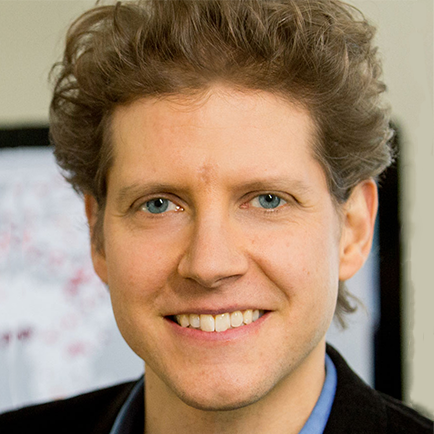
Clark Freifeld

Clark Freifeld
Lecturer
- Email: c.freifeld@northeastern.edu
Professor Clark Freifeld is a lecturer in computer science at Northeastern University. His research focuses on applications of computing technology and artificial intelligence to the improvement of population health. He also serves as an affiliate faculty member at the Innovation and Digital Health Accelerator at Boston Children’s Hospital. Professor Freifeld has co-authored over twenty journal articles and co-founded and overseen a range of health informatics projects. His projects include: HealthMap, a global disease surveillance platform; MedWatcher, a medical product safety monitoring system; and StreetRx, a crowdsourcing tool for understanding black market pharmaceutical transactions.
Professor Freifeld’s work has been used by millions of people and supported by public health agencies including CDC, WHO, DHS, DOD, HHS, and FDA, as well as being recognized by the Smithsonian and Library of Congress. Before joining the faculty at Northeastern, Freifeld was co-founder and chief technology officer of Epidemico, a health informatics spinout from Boston Children’s and MIT, now a division of Booz Allen Hamilton. He holds a Bachelor of Science in Computer Science and Mathematics from Yale University, a master’s from the MIT Media Lab, and a PhD in Biomedical Engineering from Boston University.
